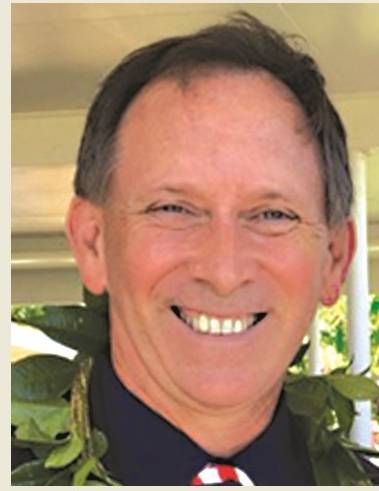HILO — A sparse audience Thursday evening capped off six public hearings as the county Charter Commission wrapped up its roadshow giving residents all over the island a chance to weigh in on proposed changes to the county’s fundamental governing document.
The crowds may not have been large, but there were participants from the public at all six meetings, said Chairman Doug Adams. He said the commission has also received more than 500 communications from the public and government officials.
“The voters will make the decision; the charter commission’s job is to make sure the things they are voting on matter,” Adams said. “We’re not done yet and we know that.”
The commission next meets April 25, when it will continue sifting through new proposals as well as finalizing the proposed amendments that have passed first reading. Those that clear second reading go to the County Council by the end of June, which doesn’t have veto power but can, within 30 days, propose alternative amendments that would also appear on the ballot.
After that, the Charter Commission writes the ballot language.
“I think everyone on the commission has taken this very seriously,” said Commissioner Kevin Hopkins. “We have a diverse set of opinions here but everybody will very much consider what the public has to say.”
A few dozen members of the public attended the Thursday hearing in Hilo, with testimony from six speakers scattered around several topics.
Several testifiers supported CA-17, requiring the county devote 1 percent of property taxes every year for a disaster and emergency fund until the fund reaches $20 million. Others spoke favorably about CA-9, which changes the county’s open space fund to require a dedicated staffer to oversee the fund.
CA-8, extending terms for County Council members from two to four years, drew testifiers on both sides.
Cory Hardin opposed the change, saying the shorter terms keep council members accountable to their constituents.
“If someone’s good they’ll get reelected,” Hardin said. “I think we should work against concentration of power. … This is a democracy; we want to spread that power around.”
Mary Begier supported four-year terms. She said two-year terms don’t give council members enough time to get up to speed and see a project through fruition.
“With a two-year cycle they’ve barely got started,” Begier said, adding, “accountability gets twisted to some sort of beholden.”






